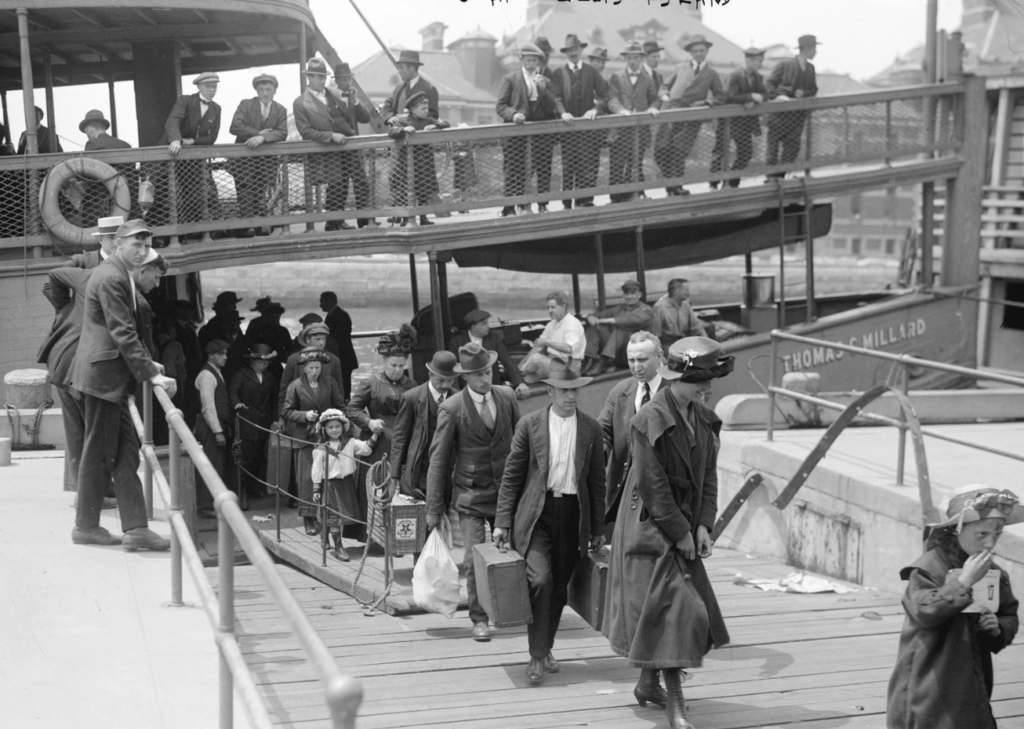Poverty was common in Germany two hundred years ago. Thousands of Germans emigrated at the time due to an enticing offer from the Brazilian ruler.

Germans had it tough at the turn of the nineteenth century due to the Napoleonic Wars’ aftermath, poor harvests, and heavy taxes.
After after, an enticing offer arrived from across the globe – 77 hectares of property for any family that was eager to relocate in Brazil. In addition to cash aid for the first two years, seeds, animals, and agricultural equipment.
It’s beyond anything many German artisans, day workers, and farmers could have ever dreamed of back home. They were quick to answer the summons and leave their previous house behind.
Expats needed in this old Portuguese colony
The Argus, carrying around 280 passengers, docked in Rio de Janeiro in January 1824. This ship made history as the first to transport Germans “in the service of the Brazilian Empire.” Sao Leopoldo, named after the Austrian wife of the Brazilian Emperor, Leopoldine, was founded on July 25, 1824, by the newcomers who had previously settled in the states of Santa Catarina and Rio Grande do Sul. Contrary to popular belief, she had actively sought to have Germans sent to Brazil.
Just two years before, the South American nation had progressed beyond its status as a Portuguese colony, thus Emperor Dom Pedro I’s decision to welcome the immigrants was more than a token of goodwill. Above all else, he needed settlers to cultivate in Brazil’s southern region, but he also wanted them to be prepared to battle if Brazil’s foes attacked.
Historian Stefan Rinke of the Free University of Berlin’s Institute for Latin American Studies said, “The end of slavery was in sight, and the question arose as to where to get new workers.” Because of the growing difficulty in obtaining supplies caused by the British embargo of the slave trade, people realized that slavery could not be sustained in the long run. At that point, they began to focus on the regions controlled by Germany. There were a lot of impoverished individuals there, and they were aware that they were also being pressured to leave.
It was Brazil’s goal to “whiten” its citizenry
The ruling class in Brazil at the time aspired to “whiten” the nation via immigration policies.
“Progress was equated with Europeanization, both of customs and traditions, but also specifically of the population,” DW said. They were looking for Europeans. And not just any Europeans, but especially those from Central Europe, since they were seen to be an especially admirable lot: ambitious, obedient, moral, and not to mention a great source of potential new subjects.
In the next hundred years, some 250,000 Germans will settle in a new country almost 6,000 miles (6,200 kilometers) away from their original homeland.
“Here you get a piece of land the size of a county in Germany,” a Brazilian pioneer wrote with great enthusiasm to his family in 1827.
Ample room was required by the pioneers for their dwellings, agricultural pursuits, and animals. The newcomers did not, however, find themselves in an uninhabited forest. Bloody conflicts sprang out between the new German newcomers and the indigenous people who had previously settled the area, as the former struggled to protect their homeland.
The government quickly began using mercenary forces to brutally wipe out the indigenous population. Circumstances between the highlands and the coast are being obstructed by the Bugre, a pejorative word for Indigenous people, according to the Urwaldboten, a newspaper published in the 1850-founded Blumenau. This disruption has to be removed immediately and completely. Here, sentimental thoughts regarding the unfair practice of Bugre hunts that go counter to moral norms have no business there. An army of Bugre hunters and rangers must scatter the nomadic tribes so that they are all killed out at once.
Tucked away in the seclusion
Because they were no match for the indigenous people’s hunters, two-thirds of the Indigenous population perished.
In contrast, the German colonies were rather successful. The newcomers maintained the traditions of their ancestral nation and kept speaking German. Few could communicate in Portuguese, and the settlers avoided mingling with their newfound neighbors. Immigrants continued to commemorate the kaiser’s birthday and sent substantial donations to the homeland even when they were fighting in World War I.
The Brazilian people were more skeptical as a result of this isolation, and the “German danger” warnings grew louder. Many German-descended immigrants in the 1930s got passionate about Adolf Hitler as the National Socialists gained momentum in Germany. As a matter of fact, Brazil was home to the biggest Nazi party outside of Germany, and schoolchildren there would chant Nazi songs.
Finally, President Getulio Vargas took a firm stance. The Nazi Party and German-language media were outlawed, German-speaking communities were dissolved, and the language itself was criminalized.
“This was because Brazil had declared war on Germany in both world wars, so it was also a question of internal security,” said Frederik Schulze of the Ibero-American Institute in Berlin. Riots broke out against German companies owned by Brazilians after German submarines sank ships in Brazil as well. To rephrase, the conflict “rekindled” the whole attitude.
Nazi Germany had crumbled by 1945, and German culture had sunk to a low point. German-Brazilians stopped communicating with their ancestral nation. They assimilated into Brazilian culture after learning Portuguese, and their children did the same.
A few German customs have managed to stay alive
Even if southern Brazilian German accents are becoming more common, the impact of German immigration is still felt today. Tourists may savor sauerkraut with pig knuckle and apple strudel while seeing half-timbered homes in the area.
Blumenau is renowned for hosting one of the biggest Oktoberfests in the world, second only to Munich. The town was established in 1850 in the midst of the rainforest by the German pharmacist Hermann Blumenau.
Turns seems that trend was wrong all along. Brazilians are currently making the inverse migration to Germany that hundreds of thousands of Germans did two centuries ago. The German Ministry of Foreign Affairs reports that there are around 160,000 Brazilians living in the country at the present time.


